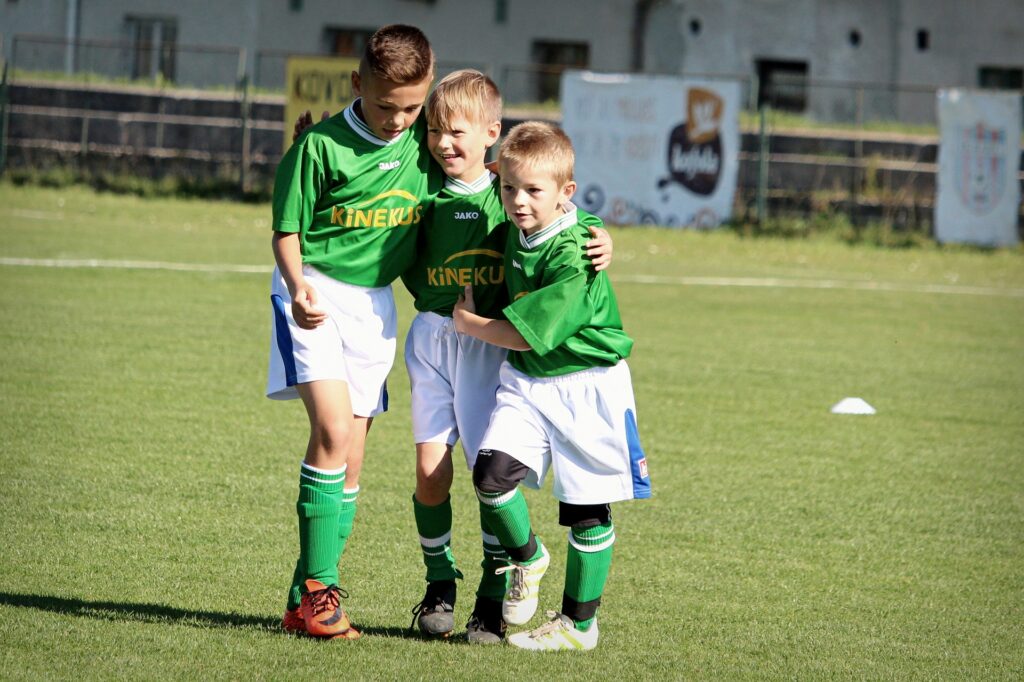Leadership in society
Most would agree that leadership is a valuable skill in society these days. Yet, not many see it as a skill that can be proactively developed in children. Instead, these people think leadership is either a character trait that individuals are born with or it can only be acquired in a workplace where they are older and have enough ‘life experience.’ This is far from true. There are great leaders who are introverted and other equally great leaders who are extroverted. Leadership is also a skill rather than a character trait and like all skills it can be developed through practice and experience. It can also be quite difficult to develop leadership in a workplace when most staff members are simply assigned a job title and have a job to be done. This is where sport comes in, sport can be an environment where young people can develop this skill and experience great personal growth.
Leadership opportunities in sport
Some parents enrol their children into team sports over individual sports because they believe it better develops teamwork in them. In fact, it is irrelevant and there is no real difference. Children who participate in individual sports like tennis are still part of a tennis club where they are surrounded by a close-knit group of fellow club members. The qualities of teamwork such as encouragement and cooperation are still very much present in these club environments. The same can be said with leadership. Regardless of whether it is an individual sport or team sport, the club or team environment provides plenty of opportunities for children to learn leadership qualities. You can start off by teaching them small actions such as vocally encouraging others or leading by example by training hard and with the right attitude. As they grow older into their teenage years, it is worth reminding them that if bigger opportunities present themselves to not shy away from them. They can put their hand up for the team captaincy or being a part of the committee team. A volunteer coaching role for their local basketball club, for example, can also really challenge them and teach a lot of leadership skills along the way. However, it is important to note that teenagers should not be pressured into pursuing these roles as it can be uncomfortable for them if they are not ready. As they grow older, there will be increasing leadership opportunities whether it be in their local sports club or in sports clubs at university.
How leadership roles can benefit a child’s future
Developing leadership is a fundamental part of personal growth and the benefits can extend into many areas when your child reaches adulthood. From a career perspective, company recruiters always emphasise on a candidate having leadership qualities. A quick flick through job ads and you can see they are always looking for a person with the right qualities, not just a person with the right qualifications. Also, they will always ask for examples where this leadership has been demonstrated. This is where the past experiences as team captain, committee member or volunteer coach come in really handy. Being able to highlight these experiences can really attract a recruiter’s attention and set apart a candidate from others. From a community perspective, these leadership roles also have great benefits. Teenagers who had greater involvement in their sport, whether it be a committee member or coach, will likely have greater motivation to remain in their sport as they reach adulthood and give back to their sport through such roles. Consider this, how many people are out there who were once actively involved in sport as teenagers only to grow out of it and fall into a sedentary lifestyle in adulthood? It is probably more common than we think. As a society, we seem to accept the notion that it is normal for a young person to just ‘play’ sport and quit when a more important pursuit has emerged in their life like, for example, their career. Furthermore, quitting their sport sounds negative so we just label it as teenagers ‘growing out of their sport.’ To offset this issue, these leadership roles can really encourage a sense of belonging for adults to remain involved in their sport and them giving back also benefits community sport.
